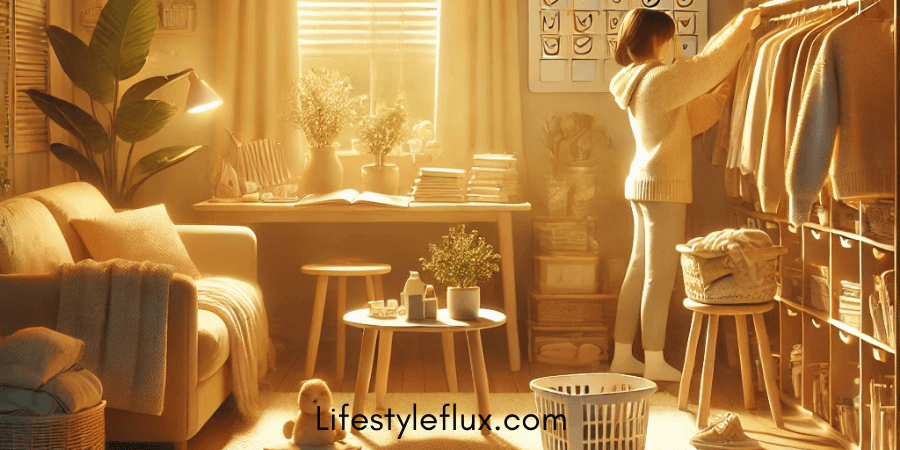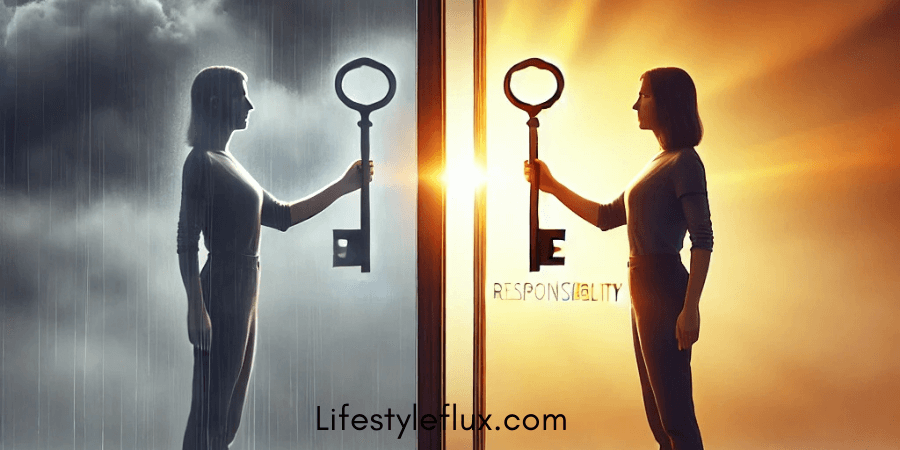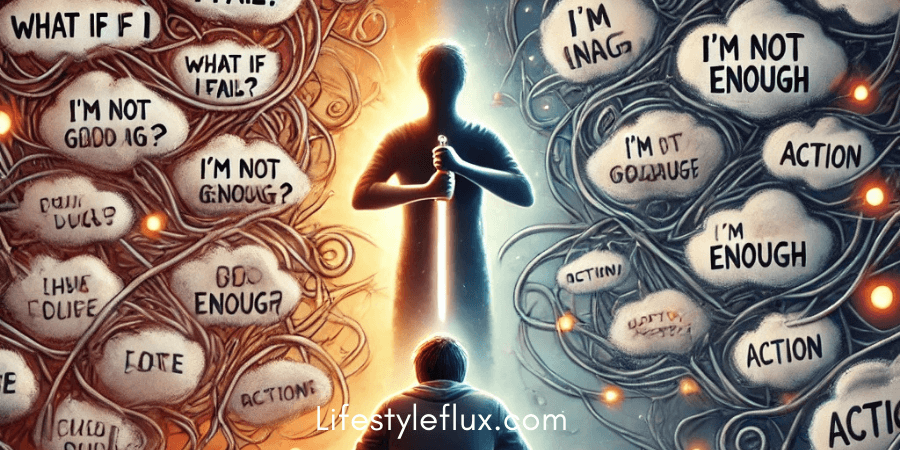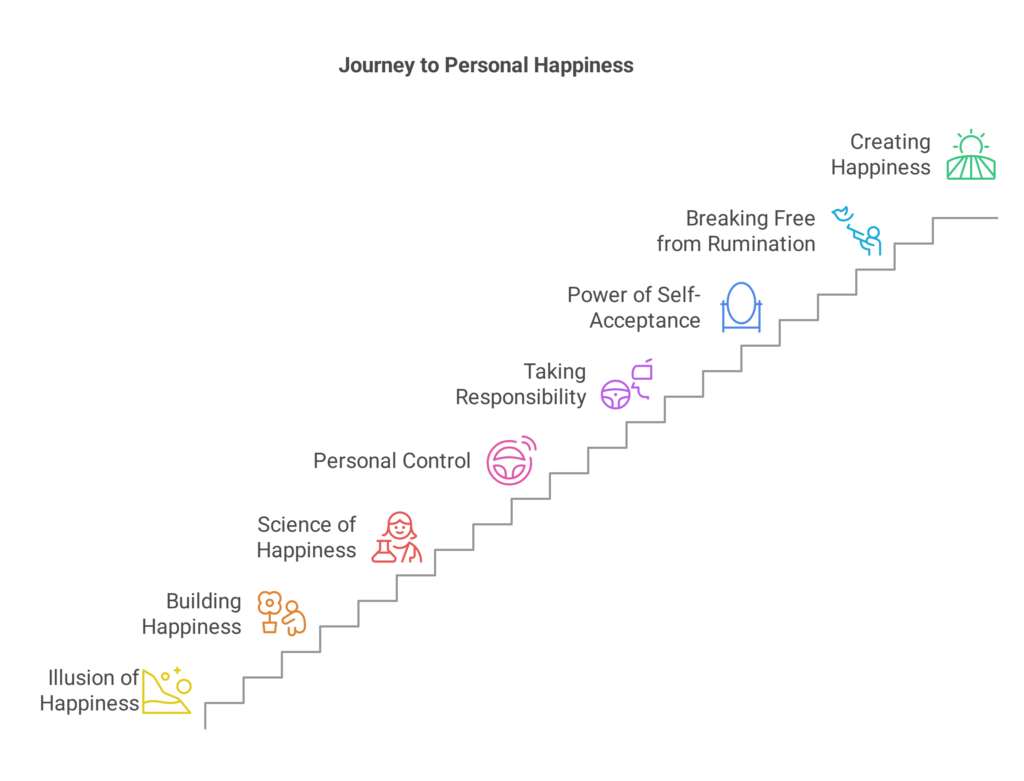Most of the world is searching for a secret formula for happiness. They want some magical solution to make their wildest dreams come true because that’s what many people think happiness is.
In this article, I will tell you one habit that helps you find happiness every day. In their minds, happiness is synonymous with those extravagant fantasies they like to daydream about.
You know which ones I’m talking about—the dreams where you’re rich, famous, and living on top of the world. In these dreams, every day is filled with new and exciting experiences.
You might be surrounded by people who love and admire you. You might have accomplished every goal you’ve ever set for yourself. In these dreams, negative emotions like fear, doubt, and loneliness become a thing of the past.
Table of Contents
1. Illusion of Permanent Happiness
While it would be nice to spend the rest of your days laughing, smiling, and enjoying life, that’s not the kind of happiness this transformative habit is going to bring you. Because that’s not what real happiness looks like.
First of all, being happy isn’t some medal for you to win. It’s not a finish line for you to cross. There’s no switch in your head that suddenly makes you happy forever. Happiness will never be a permanent part of who you are. Happiness is a temporary state of mind.

It’s fleeting, situational, and can disappear in the blink of an eye. You might be happy for a few weeks until suddenly you have a rough day. You start feeling sad or lonely. You’re stuck in a rut, and you don’t know why. But that doesn’t mean you won’t feel happy again tomorrow. You have to learn strategies to pick yourself back up.
2. Building Happiness Bit by Bit
So, how do you make yourself happy as often as possible? Even though happiness is a state, not a trait, you can still create a happier lifestyle for yourself. Think about it like cleaning your room. What happens if you stop cleaning for an entire year?

Obviously, your room gets really messy and gross. It becomes harder and harder to clean the longer you ignore it. So, what if you didn’t wait until the end of the year? What if, instead, you set aside a little time each week to straighten things out? Wouldn’t your room be much easier to clean?
My point is that happiness is something you earn bit by bit, day by day. But to make sure that positivity sticks around, you need to set yourself up for mental and emotional success.
3. Science of Happiness
This is actually an extremely well-researched subject in psychology. A 2016 research summary, which draws from over a dozen studies, explains in detail how happiness is influenced by context. Of course, in the scientific community, happiness isn’t really a useful term.
It’s way too vague. Everyone you ask will have their own definition of what it means to be happy. That’s why these studies focus on something called subjective well-being (SWB).
It’s essentially the same thing as happiness, but it concentrates more on life satisfaction, which makes it easier for researchers to define and measure.
But let’s go back to that 2016 summary. The recent research discussed in this paper reveals a number of new discoveries about subjective well-being. One of the most important is that SWB is very flexible and malleable. In other words, happiness is substantially affected by the decisions you make and the environments you choose.
4. Role of Personal Control
You can see evidence of this in a 2005 study. Here, researchers investigated how happiness fluctuates over several years. As their stations in life began to change, researchers noticed that happiness followed.
But no one gave these participants the tools to live a happier life. All the researchers did was observe their contexts and choices. Yet, it was the people who actively pursued their happiness that showed the most significant improvements.
Another study from 2012 honed in on the impact of major lifestyle changes on subjective well-being. It turns out that marriage, employment, and a number of other personal factors are some of the best predictors of general life satisfaction.
And these aren’t the only studies out there. There are plenty more that echo how much control you have over your happiness. Yet, so many people still sit around waiting for happiness to fall into their laps.
5. Taking Responsibility for Your Happiness
That’s why the one habit that will improve your subjective well-being isn’t getting more sleep, taking breaks, or spending time with happy people. All of these changes will make you feel better, but they’re passive.

Remember that subjective well-being is something you can and should actively develop. That’s why the one habit that will improve your life is to grab it by the horns. It’s internalizing the fact that your happiness is always your responsibility and no one else’s.
6. How Responsibility Creates Positivity
Now, let’s look at exactly how this one habit creates both positivity and satisfaction in your life. We’ll start with “gaining control” because that’s the first thing responsibility gives you.
It provides a much-needed sense of power over how your life pans out. According to a 2018 study, maintaining personal control keeps your mind feeling stable and balanced.
In other words, you feel better about something when it seems like it was your decision. Researchers tested this by measuring emotional responses to increased and decreased levels of personal control.
Sure enough, increased control effectively mitigated negative emotions. But even more interesting is what they discovered by decreasing control.
You’d think that if more control makes you feel better, less control would make you feel worse, right? However, decreasing personal control didn’t cause a spike in negative emotions. Without any agency, participants didn’t care.
7. Trap of Apathy
This is the same trap that many people fall into on a daily basis. They go through life feeling apathetic. They don’t think they have any control over what’s happening. Unfortunately, their indifference turns into long-term pessimism, which leads to hopelessness and low self-esteem.
If you didn’t already know, these are two of the most difficult emotional states to recover from. By taking control of your happiness, you’re not only getting rid of that toxic apathy, but you’re also giving yourself the opportunity to genuinely improve.
8. Power of Self-Acceptance
While perceived control is important, it’s not the primary reason why this one habit is so effective. That has more to do with self-acceptance than anything. When you take responsibility for something, you also take ownership, right? You’re claiming that something is yours, no matter how positive or negative it turns out to be. In this case, the thing you’re claiming is yourself.
Believe it or not, this is something very few people actually do. Think back to those daydreams you had about fame and fortune. In those dreams, are you actually yourself?
Or are you some imaginary version of yourself that couldn’t possibly exist? We spend so much time wondering what it would be like to be another person that we forget to make the best of who we actually are.
9. Making the Best of What You Can Control
That might be the most impactful product of this one life-changing habit. It gets you used to accepting the things you can’t change and making the best of the things you can. That brand of acceptance will work wonders for your confidence and self-esteem.
Why? Because it relieves the constant frustration of butting heads with things you can’t control, which take shape in your fears and insecurities. Say you’ve always been unhappy with your appearance. Since you don’t like the way you look, you often envy more attractive people.
You see their confidence and charisma, and you assume they have those things because of their looks. You stop trying to find those things for yourself because you’re too focused on something you have no control over.
Taking responsibility means changing your focus. It’s about identifying a problem and finding the avenues where you can actually improve. For example, if your goal is to enhance your appearance, it’s tempting to concentrate on your height or the shape of your face.
But you’d never get anywhere. By shifting your attention toward things you can control, like health and physical fitness, you can make real progress that you can be proud of.
10. Breaking Free from Rumination
Finally, controlling your happiness decreases one of the most common and detrimental vices: rumination. Rumination isn’t a fundamentally harmful thing to do. It just means thinking deeply about something. Much like self-reflection, rumination is completely harmless most of the time. You might ruminate after finishing a test by wondering how you did.

There’s nothing wrong with that. But if you’re feeling nervous or insecure, a little rumination can spiral out of control. You might panic that you missed a full page on the test or that you forgot to write your name on the paper.
You start doubting every move you’ve made, no matter how illogical it sounds. You become mentally and emotionally stressed out, all because you’re convinced something will go wrong.
This kind of rumination is like giving up responsibility. You’re panicking about things you have zero control over without taking any action. Whether you like it or not, you’ll never be able to change the past.
Taking responsibility for your happiness means turning your attention toward your future. You spend less time ruminating because you’ve made a habit of finding ways to change things you’re not happy with.
So, don’t spend another day waiting for someone to hand you a lifetime of happiness. Play an active role by accepting yourself and taking control of your well-being.
Conclusion:
Happiness isn’t some elusive treasure hidden at the end of a rainbow—it’s built in the small, intentional choices you make every day. The key isn’t luck, wealth, or even perfect circumstances. It’s about stepping up and owning your happiness with no excuses and no waiting around for life to hand it to you.
When you take responsibility for your well-being, you’re no longer at the mercy of external forces. You stop wishing for happiness and start creating it. You shift from feeling powerless to being in control. And that shift? It changes everything.
So, stop searching for the “secret” to happiness—it’s been in your hands all along. Now, what will you do with it?

Sources:
https://positivepsychology.com/psychology-of-happiness
https://pmc.ncbi.nlm.nih.gov/articles/PMC3122474
https://www.jstor.org/stable/40062938?seq=1#page_scan_tab_contents
https://pubmed.ncbi.nlm.nih.gov/16367493
https://www.scirp.org/reference/ReferencesPapers?ReferenceID=1992625
https://pubmed.ncbi.nlm.nih.gov/30234334
https://journals.sagepub.com/doi/abs/10.1177/1948550613502990

Founder and CEO of Lifestyleflux.com, I bring years of expertise in self-improvement, wellness, and personal development to help you lead a happier, more balanced life. Through practical insights, eBooks, and consultations, I share actionable strategies rooted in experience and a passion for empowering others to unlock their full potential.

